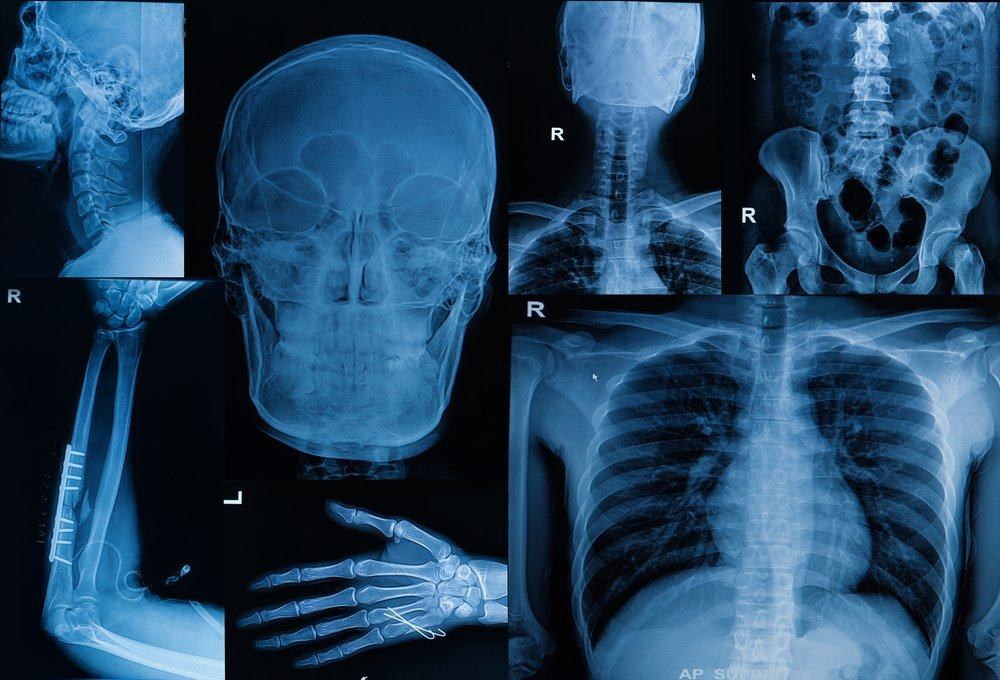Contents:
- Medical Video: Migraine? Chronic Sinusitis, Dizziness, Ear/Eye Pain/Pressure, Abnormal Hearing/Smell/Taste/Touch
- What causes allergic dizziness?
- Dizziness due to air allergies
- Dizziness due to food allergies
- Can vertigo also be caused by allergies?
- How to treat dizziness from allergies?
- Drugs
- Allergy injections
- Diet
Medical Video: Migraine? Chronic Sinusitis, Dizziness, Ear/Eye Pain/Pressure, Abnormal Hearing/Smell/Taste/Touch
If you feel dizzy, you might be wondering about the cause. Dehydration, drugs, and various conditions can cause you to feel dizzy and nauseous. Although dizziness may seem like a mild condition, this condition can really be very disturbing to everyday life. This condition can even become so severe that it can make you bedridden for hours or days.
Among the many causes of dizziness, one of which is allergies. Allergies are the immune system's response to foreign substances which are usually not harmful to your body. Foreign substances are called allergens. They may include certain foods, pollen, or pet fur, and others.
Sinus congestion associated with allergies can cause dizziness or a more severe type of dizziness called vertigo. Read the explanation below to learn what causes dizziness related to allergies and how to treat them.
What causes allergic dizziness?
Dizziness caused by allergies can be caused by a substance called allergens. Allergens can be found both in the air and in the food you eat.
Dizziness due to air allergies
If you are allergic to certain air substances, including dust, pollen and pet hair, your body starts releasing chemicals called antihistamines to fight intruders. This histamine is the cause of symptoms you know as allergic symptoms. Typical allergy symptoms include sinus congestion, sneezing, itchy throat, and coughing.
Allergies affect the Eustachian tract. Eustachian ducts are basically a duct that connects the middle ear to the back of your throat and helps regulate your balance, while also equating pressure in the middle ear with ambient air pressure. When you begin to experience symptoms in your ear, including disturbing clogged feelings that can make hearing difficult, often because your Eustachian tube is blocked by mucus. When the inj tube is blocked, the tube is no longer able to equalize the pressure in the ear and maintain balance in your body. This middle ear disorder can cause dizziness symptoms in those who suffer from allergies, colds, and sinus infections.
A mild head may also be an allergic symptom. A mild head and dizziness are two specific symptoms that are usually distinguished from one another. When you experience a light head, you feel as if you might be unconscious or unconscious, not the feeling of a rotating room (or where your head is spinning). Lying can usually relieve a mild head, at least temporarily, while dizziness generally doesn't subside when you lie down.
Dizziness due to food allergies
Lightheadedness and dizziness are sometimes associated with food allergies. This is a manifestation of the body's efforts to fight foreign substances, similar to the histamine reaction that occurs with air allergies. If you regularly have dizziness, airborne allergies may not be the cause. You may have intolerance to gluten or wheat or other food products.
Symptoms can occur immediately after eating foods that cause allergies or a few hours later, but actual food allergies tend to appear quickly. On the other hand, mild 'food intolerance' may not cause symptoms for several hours, or even days. For that, you might not associate your dizziness with the food you just ate. Maybe even an ink allergy is not known until an allergy test produces sensitivity.
Can vertigo also be caused by allergies?
Vertigo is a severe form of dizziness that causes you to see space as if spinning. Someone with vertigo may also feel as if they are moving when they are still sitting or standing. In cases of vertigo caused by allergies, the cause is a buildup of fluid in the middle ear.
It's important to know that although vertigo can be debilitating or irritating, this condition can be treated. Your doctor may run various tests to determine the cause. If vertigo is known to be associated with allergic rhinitis, the doctor will provide appropriate treatment or refer you to a specialist (usually an allergist or ear, nose and throat specialist).
Because vertigo can be associated with more serious health issues, it is important to seek treatment as soon as possible after you experience these symptoms.
How to treat dizziness from allergies?
Medications for dizziness caused by allergies are usually given to treat the cause - the allergy itself. Avoiding allergens is the most effective way to treat allergies. Unfortunately, it is not possible to completely avoid allergens in the air. Prescription drugs and commercially available drugs can help relieve dizziness and other symptoms of allergies. However, treating the cause is a more effective way to get rid of dizziness forever.
First, the doctor will try to determine the cause of your dizziness. This is usually done with traditional allergy tests, with detailed analysis of certain allergens. Food allergies are usually diagnosed through a process of elimination. Your doctor may advise you to do an 'elimination diet' to find out which foods are causing your symptoms. Based on this, you can determine the treatment or dietary changes needed.
Drugs
There are many choices for combating allergy symptoms. Popular antihistamines for short-term use can be very effective in reducing congestion that might cause you dizziness. Antihistamines are also used to treat vertigo. Know that many antihistamines can cause drowsiness. It's important not to drive or operate machinery when you first use an antihistamine. You should also avoid using antihistamines with antidepressants, anti-anxiety drugs, muscle relaxants, sleeping pills or alcohol. Talk to your doctor or pharmacist if you have questions.
In addition to antihistamines, the types of drugs to treat allergies or allergic symptoms include:
- Corticosteroid pills
- Chromolin Sodium
- Steroid sprays for the mouth or nose
- Decongestant
- Leukotriene modifier
Allergy injections
For long-term care, doctors will tend to want to treat allergies that cause histamine reactions. This can be done with prescription drugs that are safe for daily use. This can also be done with specially formulated allergy injections.
When you receive an allergy injection, you will be injected with a small amount of allergens. This helps reduce the reaction in allergens in Andq's body from time to time. Then gradually your dose is increased, so that your body can adjust. Your symptoms will decrease over time. Allergy injections are not currently available for food allergies.
Diet
You might need to consider diet changes if your dizziness is related to food. A gluten-free diet, a milk-free diet, or a wheat-free diet can be recommended. There are many choices on the market today to meet these special food needs. Your doctor may also monitor you for signs of celiac disease. This condition is a more serious form of gluten intolerance that requires full avoidance of gluten in your diet or serious health complications can occur.
Dizziness can be a problem, but when allergies are the root cause, proper treatment can restore your symptoms. The key is to determine the cause of dizziness and treat it, not the symptoms themselves.












